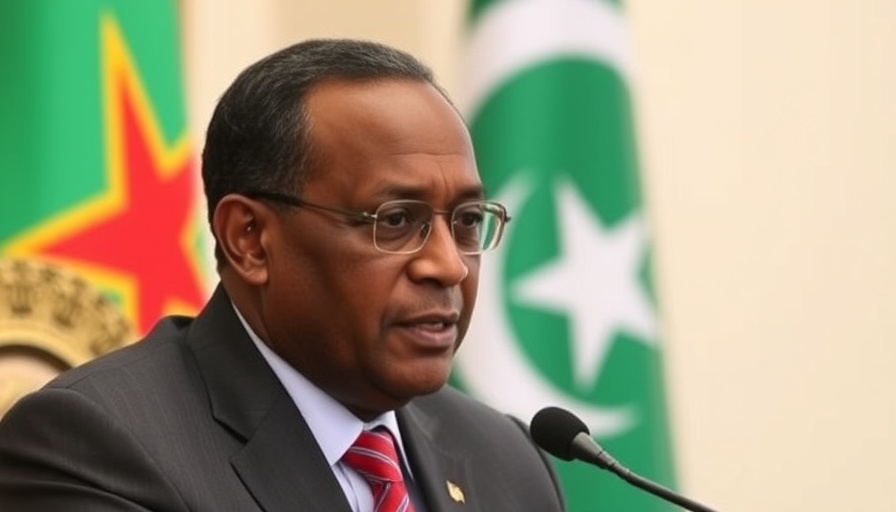
Understanding the Somalia-Türkiye Oil Deal: A Revenue Controversy
Amidst growing concerns over economic sovereignty, Somalia’s President Hassan Sheikh Mohamud has stepped up to defend his administration's controversial agreement with Türkiye concerning oil and gas exploration. Signed last year and recently leaked to the public, the deal is perceived by many as lopsided, heavily favoring Türkiye, which stands to gain up to 90 percent of the revenue from any extracted resources. Such proportions have prompted significant outrage among Somalis, rallying voices from both the public and political opposition questioning the economic rationale behind ceding such a large share of the profits.
Geopolitical Implications of Türkiye's Involvement in Somalia
The partnership between Somalia and Türkiye is not just limited to oil and gas. Türkiye has expanded its influence significantly in Somalia, having secured control over key infrastructure such as the main port and airport in Mogadishu, as well as establishing military bases in the region. These actions highlight Türkiye's strategic interest in the Horn of Africa and raise concerns about Somali autonomy and foreign dominance in its economic and political spheres.
Somalia's Perspective on Resource Management
In defending the deal, President Mohamud posits that the agreement represents a new era for Somalia, marking the first substantial efforts to explore its oil and gas reserves. He stated, "This is the first time in history that Somalia’s oil and gas reserves are being properly explored." The hope is that this foreign investment will not only contribute to Somalia's economic revival but will also shift global perceptions of the nation. However, with limited revenue share, many are skeptical if the deal will benefit local communities or simply enrich foreign powers.
Future Predictions: Will Other Nations Follow Suit?
The implications of this agreement may reverberate across the African continent, especially in resource-rich nations considering foreign investments. The potential for a similar trend of unequal agreements shouldn't be discounted, particularly as global powers like China and the EU are also seeking stronger ties with African nations for resource extraction. How Somalia navigates this relationship with Türkiye could set a precedent that other African nations may either emulate or avoid in their diplomatic and economic dealings.
Investor Insights: The Intersection of Foreign Investment and Local Economics
For business leaders and investors, the unfolding situation is a double-edged sword. On one hand, the influx of Turkish investment into Somalia could facilitate new opportunities in the energy sector and promises of economic development. On the other hand, the perceived unfairness within the deal may cause unrest and instability, factors that investors typically avoid. The nuances of this agreement could ultimately affect broader investor confidence in Somalia and signal caution as they assess risks associated with similar bilateral agreements.
As the situation continues to evolve, stakeholders are encouraged to keep a close watch on developments, ensuring that they grasp the intricacies of global trade dynamics as they pertain to Africa's financial markets.
 Add Row
Add Row  Add
Add 


 Add Row
Add Row  Add
Add 

Write A Comment